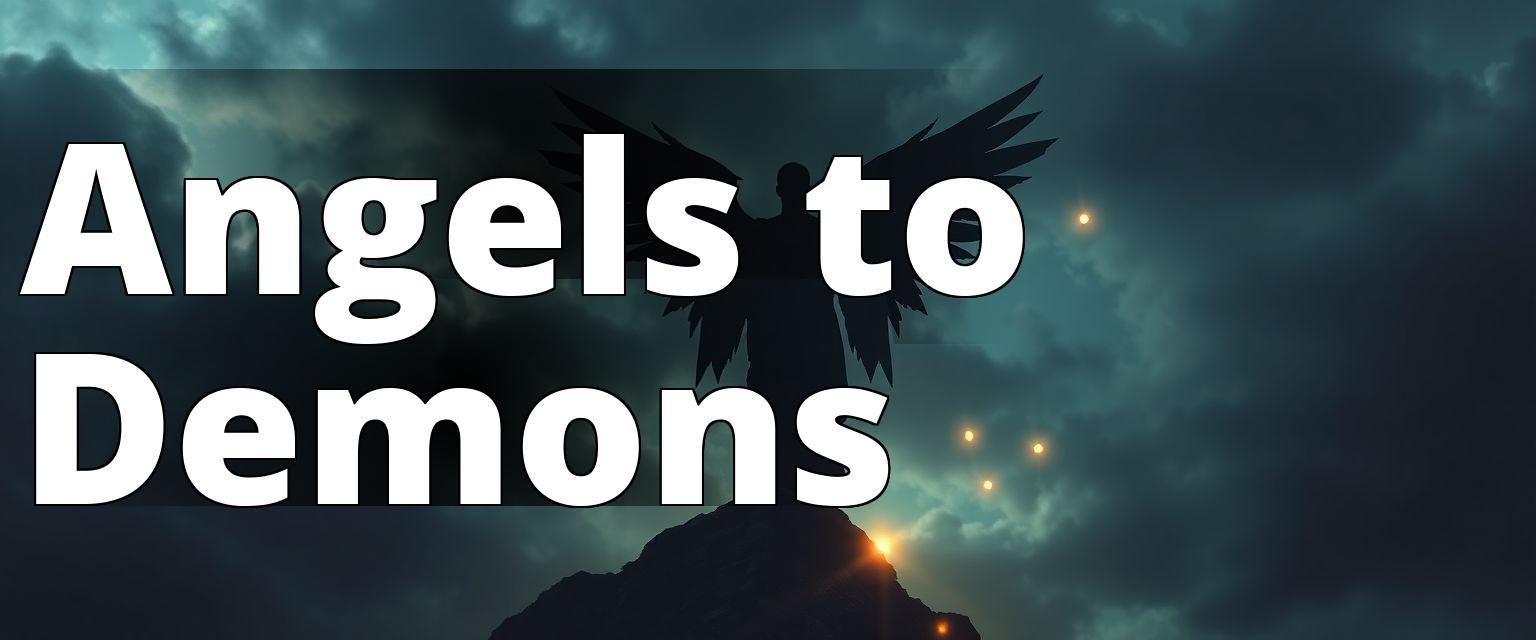Fallen Angels: The Truth About Their Sinister Reputation
Fallen angels have captivated the human imagination for centuries, but why are these celestial beings so often linked with malevolence and darkness? Their transformation from heavenly entities to demons has been a subject of intrigue across various cultures and religions. The allure of fallen angels lies in their complex narratives stories of rebellion, punishment, and metamorphosis, which challenge our understanding of morality and divinity.
Understanding Fallen Angels
Learn about the transformation of fallen angels into demons and their implications.
– Fallen angels are beings who were cast out of heaven due to rebellion against God, leading to their transformation into demons.
– While fallen angels and demons are often associated, they are not the same; fallen angels maintain some of their original angelic traits.
– Fallen angels are often perceived as evil, engaging in deceptive behaviors, and its important to understand protective measures against their influence.
What Are Fallen Angels?
Have you ever wondered what makes an angel fall? Fallen angels are, in essence, celestial beings that have been cast out of heaven. This banishment is generally a result of rebellion against divine authority or succumbing to temptations that lead them astray from their righteous path. The most famous among them is Lucifer, whose story of pride and fall from grace is well-documented in religious texts.
Fallen angels are a staple in many mythologies and religions, each with its own interpretation. In Christianity, angels are considered messengers of God, but those who defy Him are cast into hell, transforming into demons. The term “fallen angel” itself evokes a sense of tragedy and defiance, a narrative that resonates across different cultures. For instance, in Islamic tradition, Iblis is a jinn who refuses to bow to Adam, resulting in his fall from grace.
- Insider Tip: According to scholar Elaine Pagels, the notion of fallen angels is a powerful metaphor for human fallibility and the struggle between good and evil.
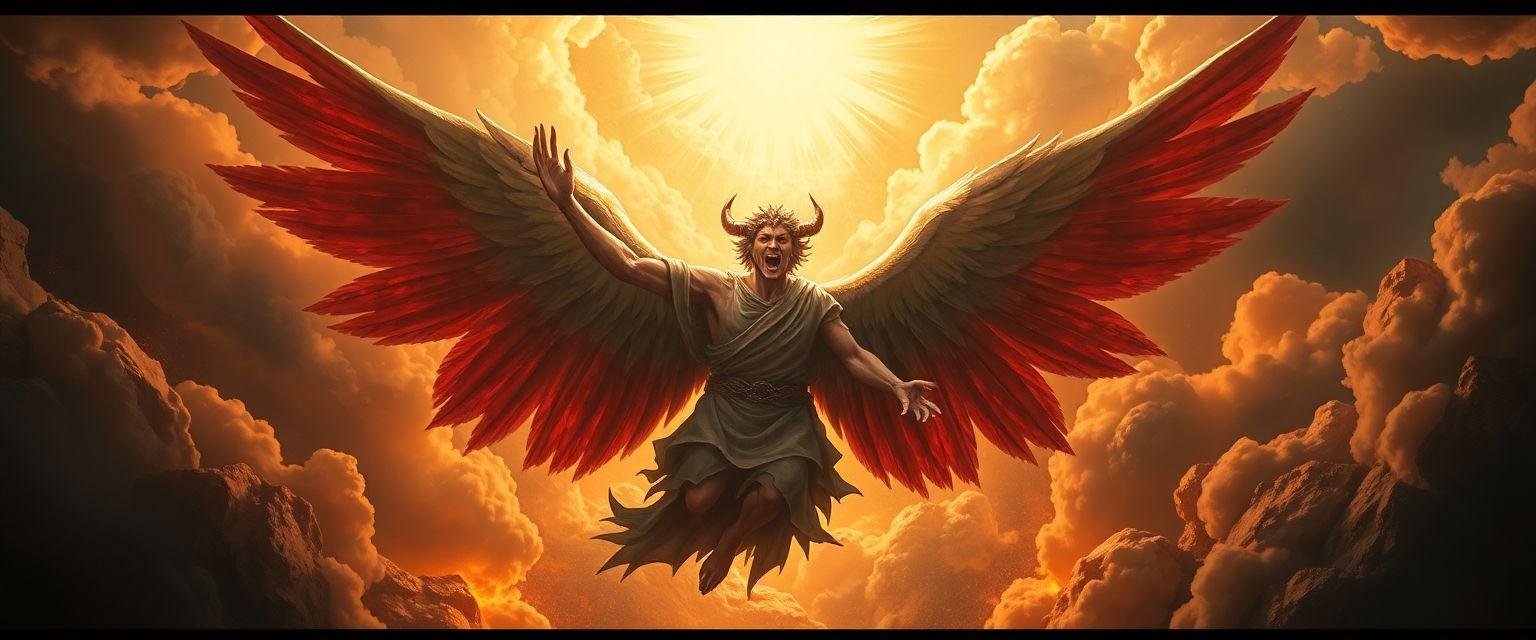
For a deeper dive into these celestial narratives, explore this resource on angels in religion and mythology.
Are Fallen Angels and Demons the Same?
Are all demons fallen angels, or is there a distinction? While fallen angels and demons are often conflated, they are not synonymous. Fallen angels are specifically those angels who have been expelled from heaven due to their defiance. In contrast, demons can originate from various sources, including being born as evil spirits or corrupted souls.
The transformation of a fallen angel into a demon is symbolic of their complete departure from divinity. This metamorphosis is not merely physical but also represents a profound shift in allegiance and purpose. Fallen angels, in their new demonic forms, are often seen as tempters of humans, spreading chaos and discord.
- Insider Tip: Demonologist John Milton once described demons as “angels who have lost their way,” emphasizing their origin rather than their current state.
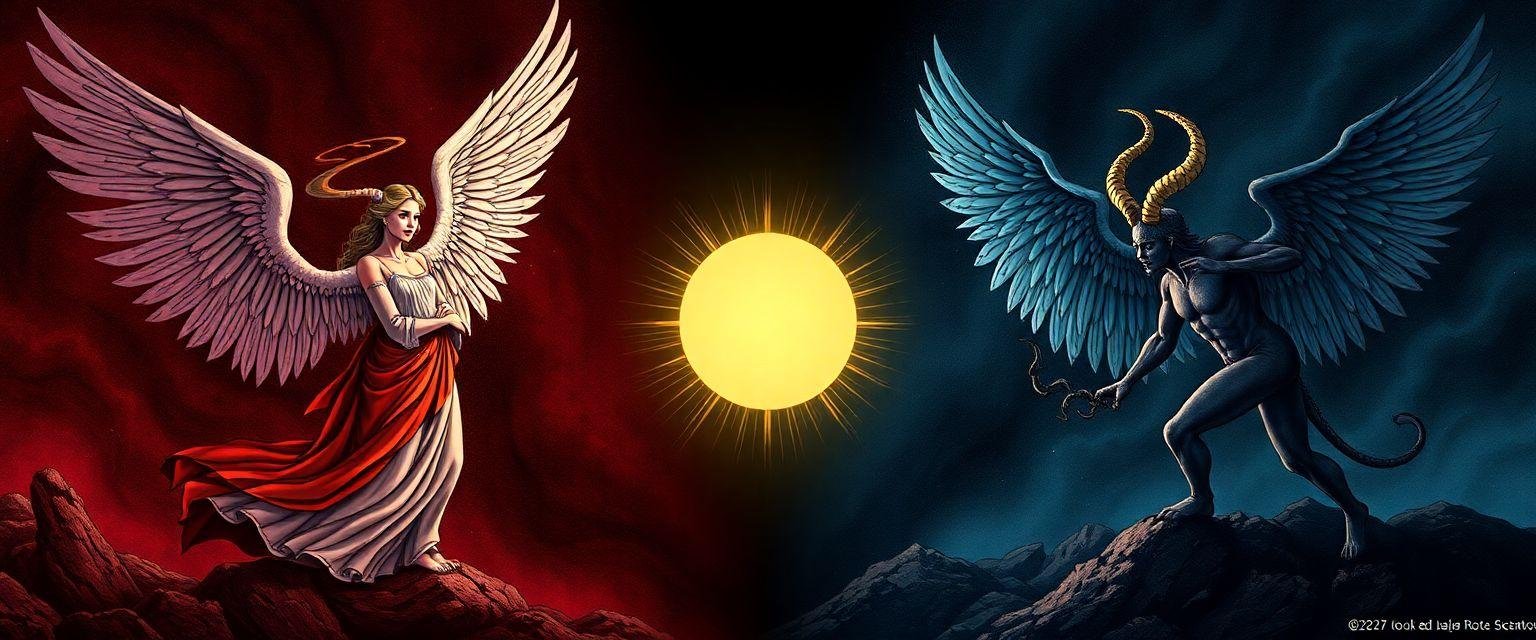
For further reading, consider this insightful article on the nature of demons throughout history.
What Do Fallen Angels Look Like?
What imagery comes to mind when you think of a fallen angel? The appearance of fallen angels varies widely in art and literature. Traditionally, they are depicted with dark, tattered wings, a stark contrast to the pristine white of celestial angels. This change symbolizes their fall from grace and their alignment with the forces of darkness.
In literature, fallen angels are often portrayed as hauntingly beautiful beings, their allure only matched by their sinister intentions. This duality reflects the inner conflictthe remnants of their heavenly past clashing with their current existence. In some narratives, their appearance can be terrifying, with grotesque features that mirror their corrupted souls.
- Insider Tip: According to art historian Alexander Nagel, the depiction of fallen angels in Renaissance art served as a warning against pride and disobedience.
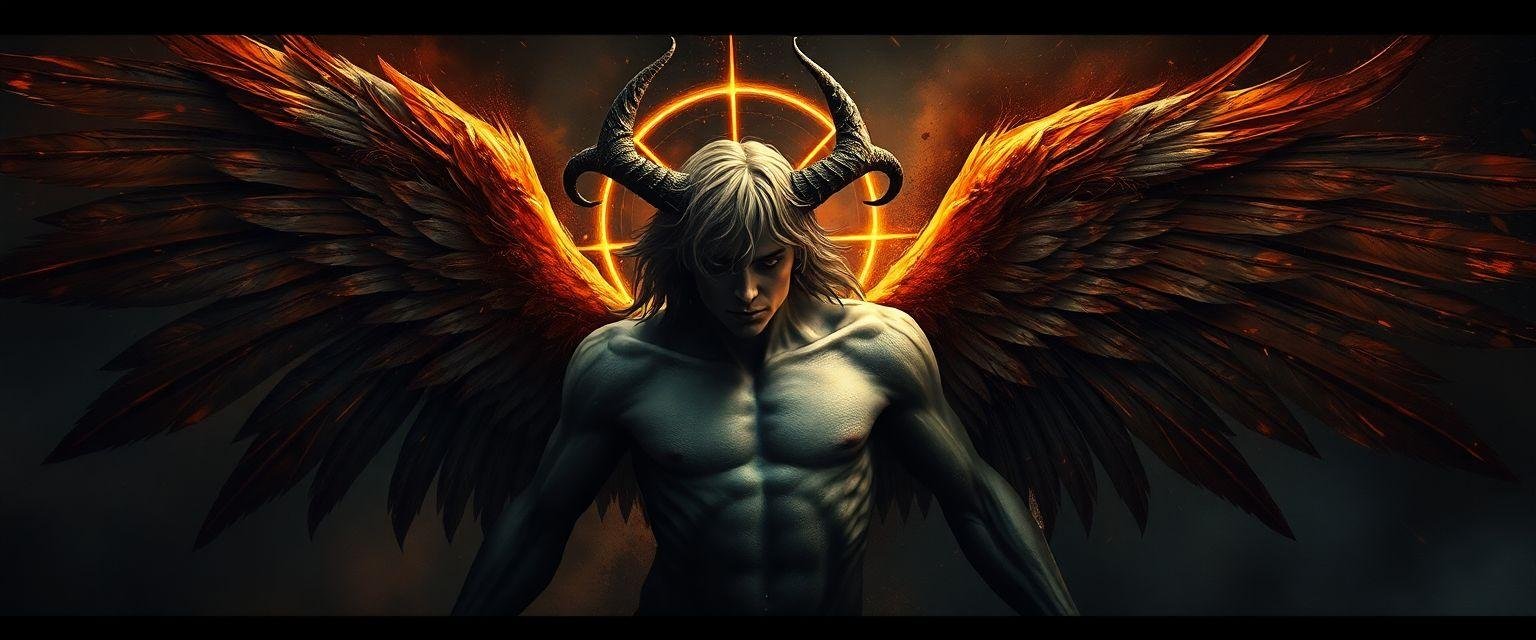
Explore more on the artistic representations of angels here.
What Do Fallen Angels Do?
What roles do fallen angels play in the world today? In various mythologies and religious beliefs, fallen angels are often seen as tempters and deceivers. They are believed to roam the earth, seeking to lead humans away from the path of righteousness. Their primary objective is to sow discord and challenge the divine order, acting as agents of chaos.
In contemporary fiction, fallen angels are frequently portrayed as complex characters, often grappling with their loss and seeking redemption. They can be both antagonists and anti-heroes, embodying the eternal struggle between good and evil. This dual role adds depth to their character, making them a favorite subject in novels, films, and TV shows.
- Insider Tip: According to theologian Scott Peck, fallen angels symbolize the internal conflict within every individual, the constant battle between our higher and lower selves.

For more on the role of fallen angels in modern media, check out this comprehensive guide.
Are Fallen Angels Evil?
Do fallen angels inherently embody evil, or is their malice a matter of perspective? The perception of fallen angels as evil is often rooted in their rebellion against divine authority. Their actions, driven by pride or vengeance, align them with the forces of darkness. However, it’s essential to consider that their evilness is not always absolute.
In some narratives, fallen angels are depicted as tragic figures, victims of circumstance rather than innate malevolence. This portrayal invites readers to empathize with their plight, recognizing the complexity of their character. By exploring their motivations and inner conflicts, we gain a nuanced understanding that challenges the simplistic dichotomy of good versus evil.
- Insider Tip: Author Neil Gaiman suggests that the story of fallen angels is a reflection of humanitys own moral struggles, encouraging readers to question the nature of evil.
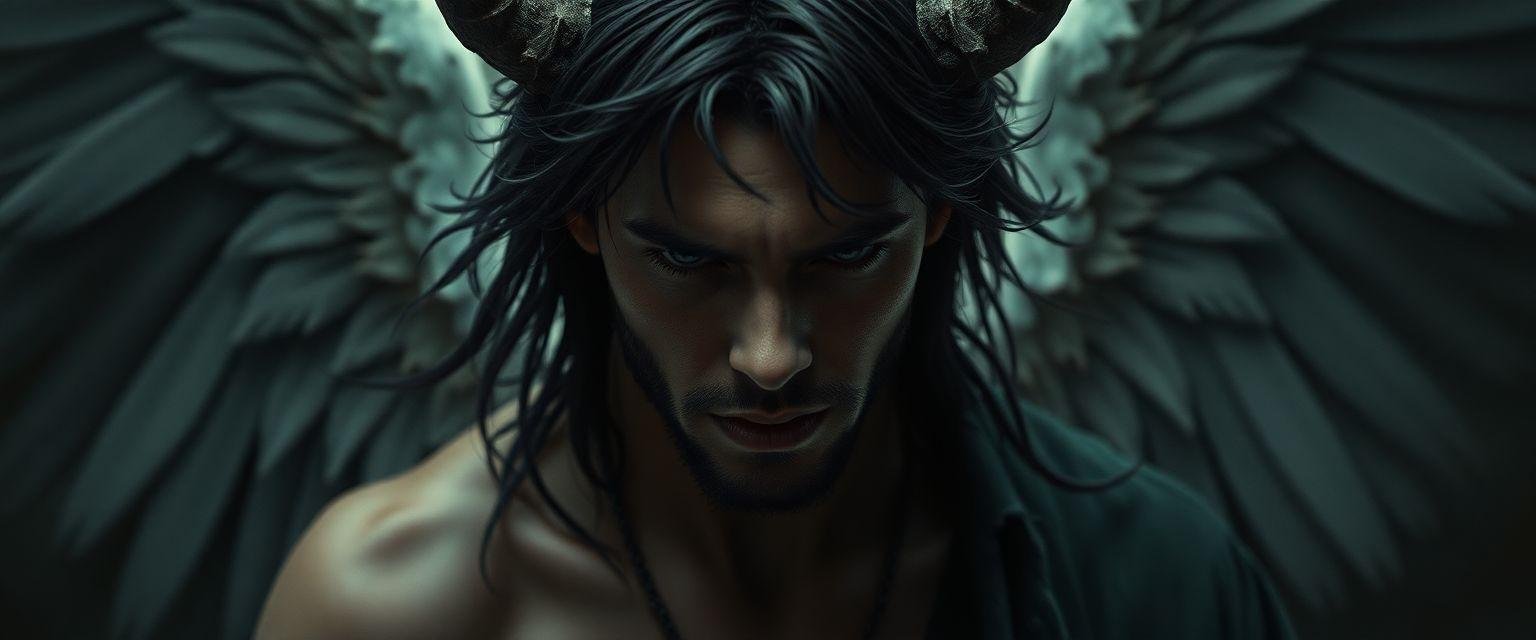
To delve deeper into the philosophical implications of fallen angels, consider this philosophical exploration of the concept of evil.
How to Protect Yourself From Fallen Angels
How can one safeguard against the influence of fallen angels? While fallen angels are often considered mythical, the symbolic lessons they embody hold relevance. Protecting oneself from their influence can be seen as a metaphor for resisting temptation and adhering to one’s moral compass.
Practicing self-awareness and mindfulness can help individuals recognize and resist negative influences. By cultivating virtues such as humility, compassion, and integrity, one can fortify their spirit against the allure of destructive paths. Engaging in spiritual practices, whether through prayer, meditation, or community service, can also provide strength and guidance.
- Insider Tip: Spiritual advisor Doreen Virtue emphasizes the importance of surrounding oneself with positive influences and engaging in uplifting activities as a means of spiritual protection.
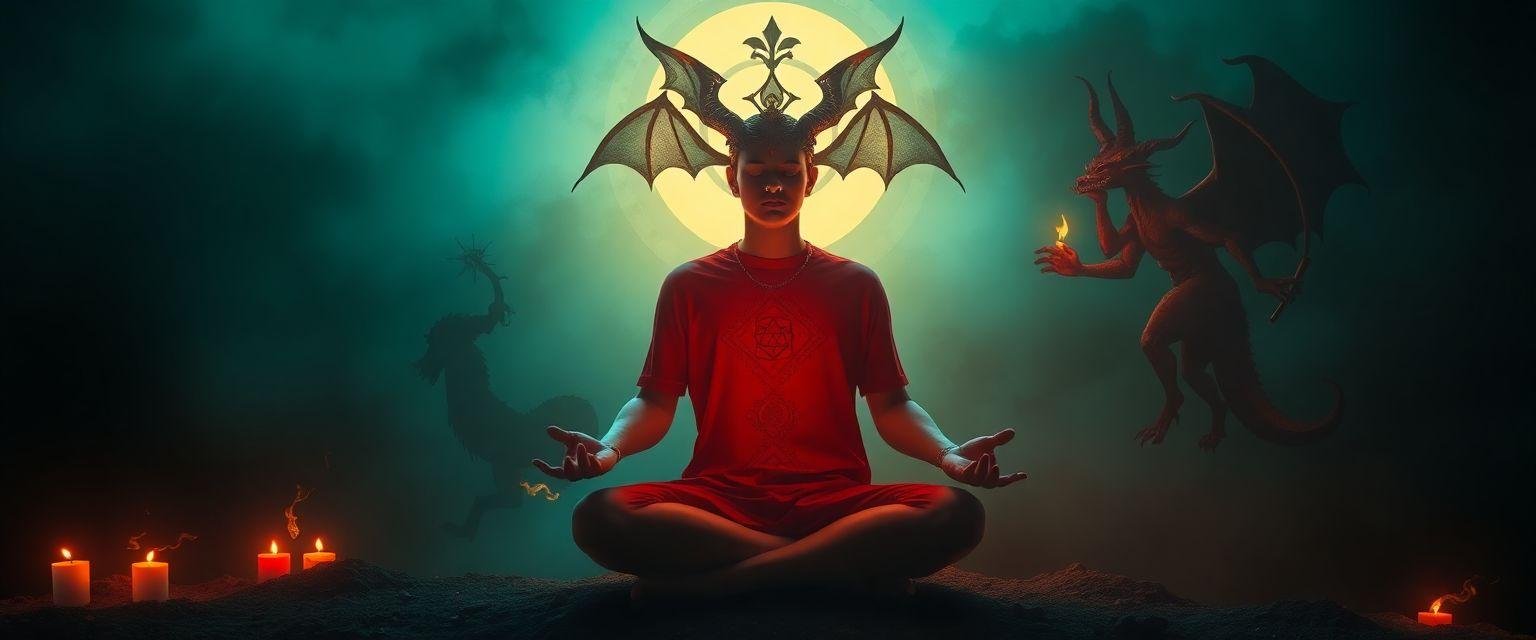
For practical advice on spiritual protection, visit this resource.
The Bottom Line
In exploring the multifaceted narrative of fallen angels, we unravel layers of symbolism that speak to our deepest fears and aspirations. These celestial beings, with their tragic falls and complex roles, challenge us to reflect on our understanding of morality, redemption, and the eternal struggle between light and dark.
Fallen angels serve as a mirror to our own human experience, a reminder of the consequences of pride and the ever-present possibility of redemption. By examining their stories, we are invited to question our beliefs about good and evil and to seek the divine within ourselves.
In the end, the tale of fallen angels is not just about celestial beings but about the choices we make and the paths we choose to follow. Whether seen as messengers of doom or potential allies in the fight for redemption, their narratives continue to captivate and inspire, urging us to navigate our own moral landscapes with wisdom and courage.

For more on the intriguing world of angels and demons, explore our other articles on Thin White Lies.
FAQs
Who are the fallen angels that transform into demons?
Fallen angels are beings cast out of heaven for rebellion against God.
What is the process of fallen angels becoming demons?
The transformation involves their corruption and embracing darkness.
How do fallen angels influence humans after becoming demons?
They tempt and manipulate individuals to lead them away from good.
Why do some believe fallen angels become demons?
Many view it as a natural consequence of their rebellion and pride.
What is the significance of fallen angels in demonology?
They represent the ultimate fall from grace and the battle of good vs. evil.
Are fallen angels and demons the same entity in belief systems?
While related, fallen angels are often seen as former celestial beings.

